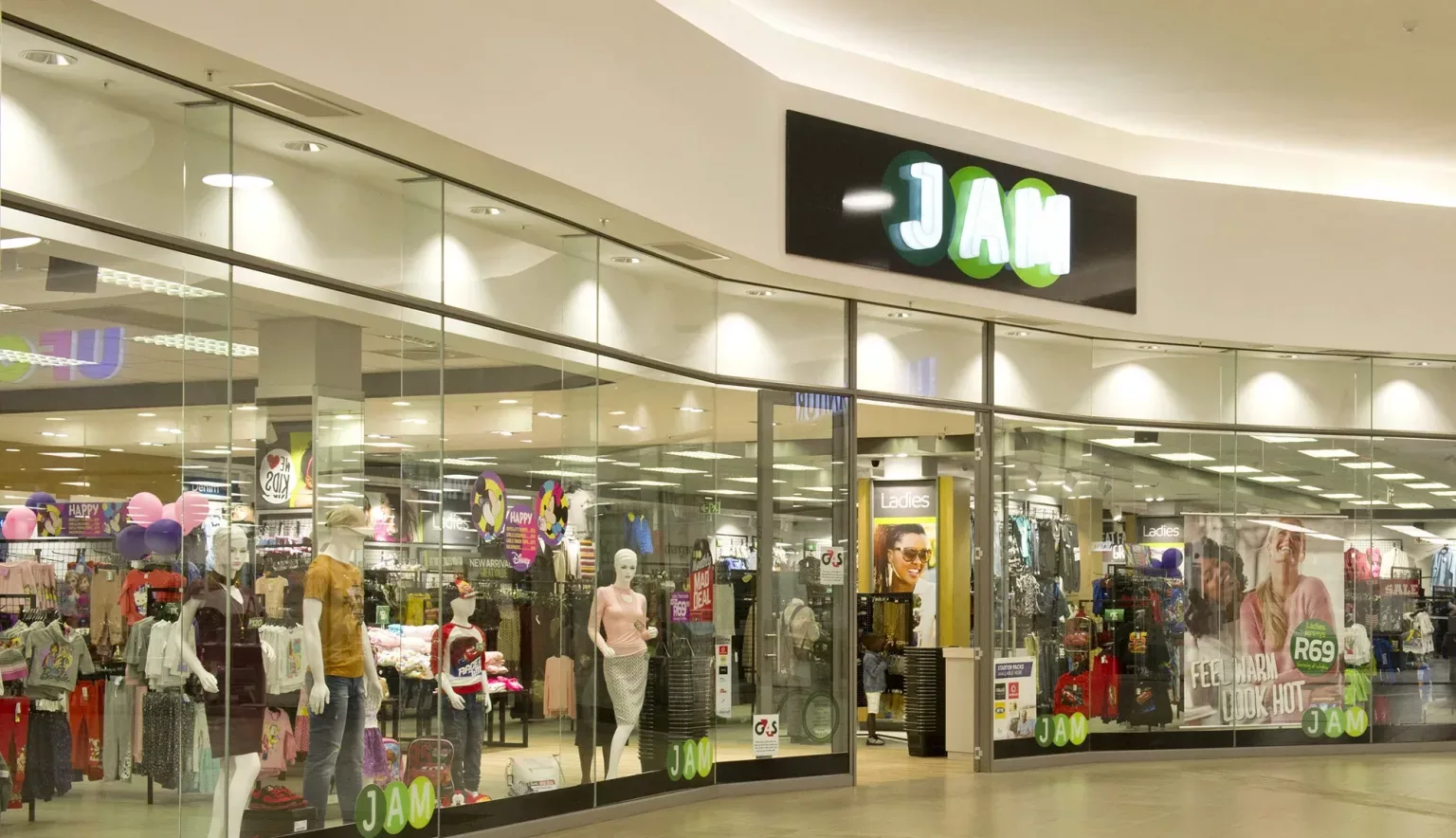Following a eureka moment during his first job after graduation, Michael Ditz and JAM Clothing have brought quality, affordable fashion to consumers up and down South Africa for more than 20 years.
THE REAL FASHION DEAL
If 2020’s global health and economic difficulties have taught us anything, it is that every ounce of expenditure counts.
From the individual consumer feeling the pinch to corporations having to adapt to extraordinary circumstances brought about by the COVID-19 pandemic, this year has brought into focus the imperative of taking nothing for granted.
It is an unenviable situation for budding entrepreneurs seeking to start their commercial journey. Well before the onset of coronavirus, the startup failure rate in South Africa was around nine in 10 within two years of operation, an indication of how tough it is to monetise an idea.
Fortunately for Michael Ditz, his eureka moment arrived in in the 1990s.
Taking the entrepreneurial plunge a few years after graduating from the University of KwaZulu-Natal, he now stands as Managing Director of his own highly successful fashion retail group, JAM Clothing.
“Back in the early 90s there was so much opportunity in South Africa, relative to now,” Ditz recalls. “One of my key responsibilities while working at my former employer was the clearing of old stock. There, I met a bunch of retailers who only wanted to buy deals. These guys where buying huge volumes and coming back every month for more – it didn’t take long for the penny to drop.
“I left the business in 1992 to register my own company, MD Trading, and started wholesaling clothing to many of my customers that I’d traded with previously. The business flourished and expanded, and by December 1998 we opened our first JAM store.”
MAKING FASHION ACCESSIBLE
Although Ditz admits he had it easier than those venturing into business today, the opening message about taking every ounce of expenditure seriously was just as critical for the Managing Director back in the 1990s. Indeed, a meticulous, relentless attention to detail on costings is what underpins the entire value offering of JAM Clothing.
Its main distribution hub and head office can be found on the same site in Durban, the beating heart of a retail network that spans 111 outlets and is about to venture online (September 2020).
The company’s goal? To make high quality fashion brands accessible to all, at a fraction of regular retail prices.
“JAM sells distressed fashion for the entire family,” Ditz says. “What that means is that we don’t buy regular stock, nor do we manufacture our own goods.
“Nearly everything we buy is either a chain store cancellation or overrun. Often the stock was originally destined for European or US markets – so, truth be told, our quality is often far superior to most of our competitors and at a fraction of the price. We manage to buy at discounted prices and then pass the discount onto our customers, undercutting the market nearly all the time.”
Central to this is a formidable supplier network built up over more than two decades of operation, Ditz quick to acknowledge the vital role such partners play in the smooth running of JAM on a daily basis.
Relationships are built on mutual understanding of each parties’ business workings and needs, the result being a JAM offering that carries almost universal appeal across South Africa.
More from Africa Outlook
“As a result of the nature of our procurement we are able to pitch our brand across a very wide band of customers,” Ditz continues. “The extreme value offering coupled with the fashionability appeals to a cross section of the population.
“We are able to sell the same merchandise in South Africa’s traditional townships and the more affluent retail centres. We avoid the regional and super regional malls – at our prices those rentals are simply unaffordable. Convenience, neighbourhood and strip malls all work well, and before the COVID-19 outbreak central business districts were also strong retail nodes, although this seems to have changed.”
JAM CLOTHING: RISING TO THE CHALLENGE
Ditz touches on the main event of 2020, the coronavirus pandemic causing societal and economic devastation all over the world.
South Africa has suffered more than most African nations to date, largely because it is the most connected of all African nations with the most advanced economy. For JAM, this year’s events have only served to heighten its focus on financials so it can continue offering value to consumers during difficult times.
Despite facing cashflow shortages in light of lockdowns and public uncertainty over heading into bricks and mortar stores, the company has been able to continue paying its 1,000-plus staff, a key priority now being to negotiate a form of COVID-19 rent relief with landlords.
It is a pressurised situation for both sides, made more complex by lease renewals and plans for new store openings, but Ditz is determined to make it work.
Indeed, from the hardships the MD actually sees plenty of cause for optimism.
“On the positive side, many of our suppliers are or have been overstocked, and this has allowed us to buy very keenly and pass on the saving to our customers, who are really under severe financial pressure,” Ditz says. “Through these really great offerings we have managed to navigate our way through the last six months.
“COVID-19 has, of course, been a reality check for everyone. We’ve had to halt all expansion plans in the short term, but what we are seeing now is the opportunity to open pop up stores. Nearly all malls now have vacancies and we hope to take advantage of this situation.
“Everyone is feeling the pinch and I believe families are being forced to ‘shop down’ – this too is playing into our hands. And although I think it’s too early to finalise expansion plans, for sure there is plenty opportunity out there for us.”
LEVERAGING ONLINE
One such avenue of opportunity lies in the field of ecommerce.
Here, JAM is set to launch a new online retail platform, a development which could not have been more timely given the shift in consumer behaviour brought about by lockdowns.
It has been a sizable undertaking and is a project that has required huge amounts of planning and preparation, not least in calculating how opening up an internet-based sales channel might impact the fortunes of the company’s 111 physical stores.
However, Ditz is well aware of the need to combine a personal, physical presence with the modern reality of how customers want to shop.
The same can also be said of how the business functions internally, the launching of a new online training platform last year showing how JAM has adapted to the challenges presented by operating a truly nationwide footprint with almost 940 permanent staff.
“We use a software package called Moodle, and every week training material is sent to store staff,” Ditz explains.
“Being a relatively young business and growing at quite a fast rate has given many individuals an opportunity to grow. We have many success stories of people starting in stores and working their way up into senior positions at head office.”
Employee motivation and development is a vital facet of JAM’s sustained success, the MD all too aware that his business relies on the dedication of its workforce.
“You can have the best store in the best location with the best merchandise, but if your retail staff are not 100 percent committed to serving and satisfying their customers, you might as well shut up shop,” Ditz adds.
“We see this time and time again – when a store is struggling and you bring in a new, motivated team, suddenly it starts performing.”
And motivation across the board, from store staff to head office management, will be central to JAM fulfilling the undoubted growth potential that lies ahead.
Ditz signs off confidently by looking ahead at the longer term, the platform for development having been laid by the work carried out in recent times.
“Our long-term view remains positive, however, short term there’s certainly a bumpy road ahead. Worldwide there’s a move to ‘off price’ clothing and I believe we are well positioned in the South African market.
“We are only at 111 stores, which is relatively small compared to many of our competitors, so there is plenty of scope within the country and even more opportunities in Southern Africa. We are launching our online platform and this will give us access to a totally new market, which is very exciting.”































